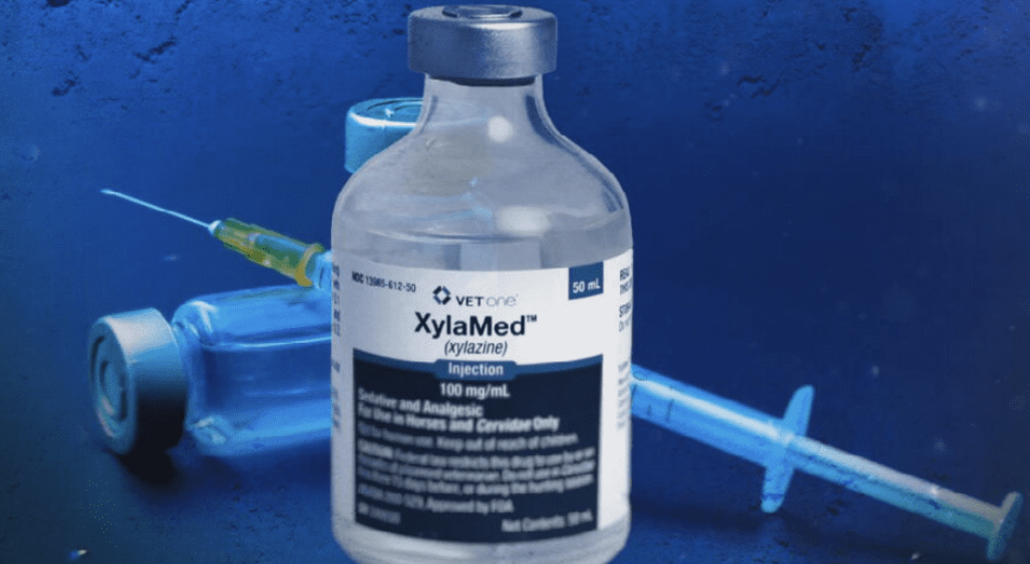Opioids can significantly impact your heart health, causing a range of issues from changes in heart rate and blood pressure to more severe conditions like heart failure and arrhythmias. This article explores how opioids affect heart health, the risks involved, and offers guidance on safer alternatives and precautions.
Key Takeaways
- Opioid use can lead to significant cardiovascular risks, including heart rate changes, blood pressure issues, and an increased likelihood of heart failure, especially with long-term use.
- Suboxone offers a safer alternative for managing opioid dependence, as it is associated with fewer heart-related hospitalizations and generally does not exacerbate existing cardiovascular conditions.
- Certain opioids, such as methadone and fentanyl, carry higher risks of severe cardiac events; hence, monitoring and careful prescription practices are essential for patients with pre-existing heart conditions.
Do opioids harm your heart?
Opioid use can harm your heart, causing both short-term and long-term cardiovascular issues such as changes in heart rate, blood pressure, heart failure, and arrhythmias. While some opioids may not directly impair cardiac function, others can have significant adverse effects.
Long-term opioid use poses a substantial risk to cardiovascular health.
For individuals with opioid use disorder, Suboxone is often considered a safer alternative compared to continued opioid use. Research indicates that suboxone use may lead to fewer hospitalizations for heart failure among opioid users and is generally safe for individuals with existing cardiovascular issues when used under medical supervision.
Thus, while opioid use can harm your heart, certain treatments like Suboxone can mitigate these risks.

Short-term cardiovascular effects of opioids
Opioids can acutely alter heart rate, blood pressure, and oxygen levels. They often lead to decreased heart rate and low blood pressure due to their vasodilatory effects, which can result in dizziness or fainting, including symptoms of orthostatic hypotension.
Overdoses can exacerbate these harmful effects, causing bradycardia or respiratory depression, both of which directly impact cardiovascular health.
Long-term cardiovascular risks of opioid use
Chronic opioid use is linked to increased risks of heart failure and other serious cardiac conditions. Long-term use can lead to arrhythmias, reduced oxygen delivery to the heart, and hormonal imbalances that affect cardiac function. These effects underscore the significant impact of opioids on cardiovascular health.
Research suggests that Suboxone does not exacerbate cardiovascular issues in individuals with existing heart conditions. Patients with a history of cardiovascular disease are generally considered safe to use Suboxone as part of their treatment for opioid use disorder. This highlights the importance of safer alternatives for managing opioid dependence.
FDA warnings and black box advisories
The FDA and the Food and Drug Administration have issued serious warnings about the cardiovascular risks associated with opioids, including potential heart rhythm disorders. Specific opioids like methadone and fentanyl addiction come with Boxed Warnings due to their significant risks of serious cardiac events.
Patients should seek immediate medical help if they experience symptoms like dizziness, extreme sleepiness, or trouble breathing when using these medications, as adverse reactions, a serious allergic reaction, a severe allergic reaction, trouble sleeping, sleep apnea, medical conditions, side effects, breathing problems, and allergic reactions can occur. If symptoms are severe, go to the nearest emergency room.
Opioids vs other pain medications: Heart health comparison
Comparing opioids with other pain medications like NSAIDs and acetaminophen helps understand their respective impacts on heart health. While opioids are effective for pain relief, they pose significant cardiovascular risks compared to non-opioid pain medications.
This section will delve into these comparisons, helping you make informed choices about pain management options.
Research indicates that Suboxone, used for managing opioid dependence, does not pose a risk for heart disease, even in patients with pre-existing cardiovascular conditions. Suboxone treatment may lead to fewer heart failure hospitalizations compared to patients using other opioids.
However, it’s important to note that Suboxone can lead to an increased heart rate and elevated effects suboxone blood pressure, posing risks for heart attack or stroke in some cases.

Opioids vs NSAIDs (e.g., ibuprofen, naproxen)
Unlike opioids, NSAIDs are not typically associated with respiratory depression, making them safer for heart health in certain patients. However, NSAIDs can increase the risk of stroke and heart attack, particularly with long-term use.
On the other hand, opioid drugs, while effective for short-term pain relief, pose risks of tolerance and potential cardiovascular issues with opioid medication long term use.
Opioids vs acetaminophen (Tylenol)
Acetaminophen is generally considered safer for heart health compared to opioids, as it does not carry the same risks of dependency and cardiovascular events. Prescription opioid users have a higher risk of acute coronary heart disease, especially among females.
Studies indicate that opioid users may experience greater cardiovascular risks compared to acetaminophen users.
Which medications are safest for people with heart conditions?
For individuals with heart conditions, non-opioid analgesics are often recommended as safer alternatives for managing pain, as they generally do not carry the same risks as opioids. Medications such as buprenorphine, used to manage opioid dependence, may have favorable profiles in patients with heart issues due to their partial agonist properties.
However, buprenorphine should be used cautiously due to its potential effects on heart rate and blood pressure, especially during long-term use of buprenorphine.
Mechanisms: How opioids impact cardiovascular function
Opioids impact cardiovascular function through various biological and physiological pathways, including their effects on opioid receptors, hormone suppression, and respiratory depression.
Understanding these mechanisms helps comprehend how opioid use can lead to heart problems.
Opioid usage is linked to increased arterial stiffness, negatively affecting cardiovascular health by escalating central arterial blood pressure. Prolonged opioid exposure can diminish heart rate variability, signaling potential future cardiovascular issues.
These changes contribute to vascular aging and increased risk of atrial fibrillation.
Opioid receptors and heart rate regulation
The activation of opioid receptors can result in bradycardia, impacting heart rate regulation. Buprenorphine, a key component of Suboxone, has a low risk for causing significant QT interval prolongation, making it a safer option for patients needing opioid treatment.
Respiratory depression and oxygen deprivation
Opioids may cause respiratory depression, leading to decreased oxygen levels in the blood. This reduction in oxygen supply can place significant stress on the cardiovascular system, contributing to heart problems and increasing the risk of cardiac events.
Hormonal and endocrine effects
Opioid use can disrupt hormone levels, potentially leading to reproductive health issues such as male hypogonadism, which results in decreased testosterone production. Additionally, opioids may interfere with the secretion of hormones like growth hormone and oxytocin, crucial for various bodily functions.
These hormonal disruptions can indirectly affect cardiovascular stability.
Heart conditions worsened by opioid use
Opioid use can exacerbate existing heart conditions and increase the risk of serious cardiovascular issues. Specific heart conditions that opioids can worsen include bradycardia, conduction abnormalities, and endocarditis from injection drug use.
Opioid use, including Suboxone, is associated with several health risks related to substance abuse:
- It can reduce heart and lung function, raising the risk of heart failure during overdose situations.
- Frequent opioid users have a heightened likelihood of developing atrial fibrillation, which significantly increases the chances of stroke and heart attack.
- The risk of infectious endocarditis has surged among opioid users due to practices like intravenous drug use.
However, Suboxone is generally safe when used under medical supervision, though misuse can result in serious outcomes, including Suboxone overdose.

Bradycardia and conduction abnormalities
Opioids can lead to slowed heart rates and irregular electrical conduction in the heart, known as bradycardia. Some opioids may induce bradycardia, affecting the normal rhythm of the heart. Additionally, using opioids, especially in combination with other medications, can exacerbate cardiovascular issues.
Endocarditis from injection drug use
Individuals who inject opioids are at higher risk for endocarditis, an infection of the heart lining caused by bacteria entering the bloodstream. The rise in injection drug usage has led to a significant increase in endocarditis cases among opioid users. Non-sterile syringe use among drug users is a primary cause, allowing bacteria to enter the bloodstream and reach the heart.
Treatment typically involves prolonged intravenous antibiotics and may require surgery for heart valve repair or replacement.
Congestive heart failure and opioids
Long-term opioid use may contribute to the development or worsening of congestive heart failure (CHF). Suboxone is generally considered safe for individuals with heart disease, as it does not worsen heart conditions and may even lead to fewer hospitalizations for heart failure compared to non-treated opioid users.
However, opioid use can lead to cardiopulmonary depression, posing risks for heart failure, especially at high doses.
Opioid overdose and heart complications
Opioid overdoses can lead to a medical emergency such as cardiac arrest, where the heart suddenly stops beating, often resulting in death.
Here are the cardiovascular consequences of opioid overdose, including cardiac arrest and arrhythmias.
Writer Instruction:
Opioid overdose can lead to cardiac arrest, where the heart stops beating unexpectedly. Annually, approximately 50,000 individuals in the U.S. die from opioid overdoses. During an overdose, both breathing and heart rate decrease, reducing oxygen supply to the brain and potentially causing brain damage.
Overdoses can result in various heart issues, including cardiac arrhythmia and changes in irregular heartbeat rhythm.
Cardiac arrest and low oxygen supply
During an opioid overdose, reduced breathing and heart rate may deprive the brain of oxygen before cardiac arrest occurs. This oxygen deprivation can cause significant damage to cardiac tissues, leading to severe complications, including stopping breathing and cardiac arrest.
The risk of cardiac arrest is heightened due to the lack of respiratory function, directly impacting heart health.
Reversing an overdose with naloxone and its heart effects
Naloxone can reverse opioid overdoses, restoring breathing and potentially preventing cardiac arrest. It acts as an opioid antagonist, quickly reversing the effects of opioids, which can restore normal breathing and aid in cardiac recovery.
Studies show that naloxone administration is linked to better outcomes in both drug-related and non-drug-related cardiac arrests.
Which opioids pose the greatest heart risks?
Certain opioids, especially those that act on the central nervous system, are linked to increased risks for heart conditions.
Here are common opioids ranked by cardiovascular risk to help you understand which medications may pose the greatest dangers.
Buprenorphine can cause QT interval prolongation, which may lead to serious heart rhythm disturbances. Therefore, patients using buprenorphine should be monitored for potential cardiovascular effects, especially if they have preexisting heart conditions.
While Suboxone is not typically associated with severe heart issues when used correctly, misusing suboxone can lead to serious cardiopulmonary complications.
Methadone and QT prolongation
Methadone can cause QT prolongation, a heart rhythm condition that can increase the risk of severe arrhythmias. High doses of methadone treatment, especially over 400 mg daily, are documented to correlate with significant QT prolongation, as methadone is reported to correlate with this condition.
Monitoring the QT interval is recommended for patients on methadone, particularly those with additional risk factors.
Fentanyl and sudden cardiac arrest
Fentanyl use has been associated with sudden cardiac arrest, particularly in overdose situations where respiratory depression occurs. High doses of fentanyl can significantly lower myocardial oxygen consumption, contributing to sudden cardiac events.
Fentanyl administration can result in acute cardiovascular instability, posing a risk for sudden cardiac arrest.
Hydrocodone and oxycodone: Common risks
Hydrocodone addiction and oxycodone use can lead to risks such as hypotension and bradycardia, impacting heart health. Prolonged usage may elevate the likelihood of experiencing heart attacks, heart failure, or strokes, particularly in individuals with pre-existing heart conditions.
Both hydrocodone and oxycodone can contribute to long QT syndrome, a condition that can result in life-threatening heart rhythms.
Heart monitoring and prevention for opioid users
Regular heart monitoring can help identify cardiovascular issues early in individuals using opioids. This section provides practical advice on baseline screening, red flags to watch for, and how healthcare providers can mitigate risks.
Patients typically experience increased heart rate and blood pressure during severe withdrawal from opioids, complicating treatment. Medical supervision is crucial for adjusting buprenorphine dosages to prevent blood pressure fluctuations and address physical dependence.
Co-administration of Suboxone with other central nervous system depressants can exacerbate blood pressure issues.
Baseline heart health screenings
Before prescribing opioids long-term, recommend tests like ECG, oxygen saturation, and blood pressure checks to establish a baseline for heart health. These screenings can help identify any pre-existing conditions that may be exacerbated by opioid use.
Signs of opioid-related heart issues
Common indicators of heart problems linked to opioid use include chest pain, shortness of breath, and swelling in the extremities. Patients on buprenorphine may experience heart palpitations and changes in heart rate, often causing episodes of an increased or racing heartbeat. Monitoring for signs of elevated blood pressure is crucial, as the drug can have hypotensive effects.
Medication alternatives and weaning protocols
Gradual tapering off opioids is recommended to minimize withdrawal symptoms and potential heart strain. Non-opioid pain management options, including NSAIDs and certain antidepressants, as well as different medications, can be effective alternatives for patients requiring pain relief.
Behavioral therapies, such as cognitive-behavioral therapy (CBT), can complement pharmacological treatment in managing chronic pain.
Bottom Line: How do opioids affect heart health?
Opioid use can have significant effects on heart health, ranging from short-term changes in heart rate and blood pressure to long-term risks of heart failure and arrhythmias. Understanding these risks, comparing opioids with other pain medications, and considering safer alternatives like Suboxone can help mitigate cardiovascular dangers. By staying informed and working closely with healthcare providers, individuals can make safer choices for pain management and heart health.
FAQs about opioids and heart health
Can opioids cause a heart attack?
Opioids can indeed increase the risk of a heart attack due to their effects on heart rate, blood pressure, and oxygen delivery to the heart. Therefore, it is crucial to use opioids with caution and under medical supervision.
Is it safe to take opioids with heart disease?
It is not safe to take opioids with heart disease without consulting a healthcare provider, as there are increased cardiovascular risks associated with their use. Always prioritize medical guidance when managing such conditions.
What heart medications interact with opioids?
Heart medications such as beta-blockers, calcium channel blockers, and anticoagulants can interact with opioids, potentially causing adverse effects. It is essential to consult a healthcare professional when combining these medications.
Are there safer alternatives to opioids for pain management?
Indeed, safer alternatives to opioids for pain management include non-opioid analgesics such as NSAIDs and acetaminophen, as well as treatments like cognitive-behavioral therapy. These options can effectively alleviate pain while minimizing the risks associated with opioid use.
How can opioid users prevent heart complications?
Opioid users can prevent heart complications by engaging in regular heart monitoring, conducting baseline screenings, and gradually tapering off opioids under medical supervision. These measures are essential for maintaining cardiovascular health while using opioids.
















